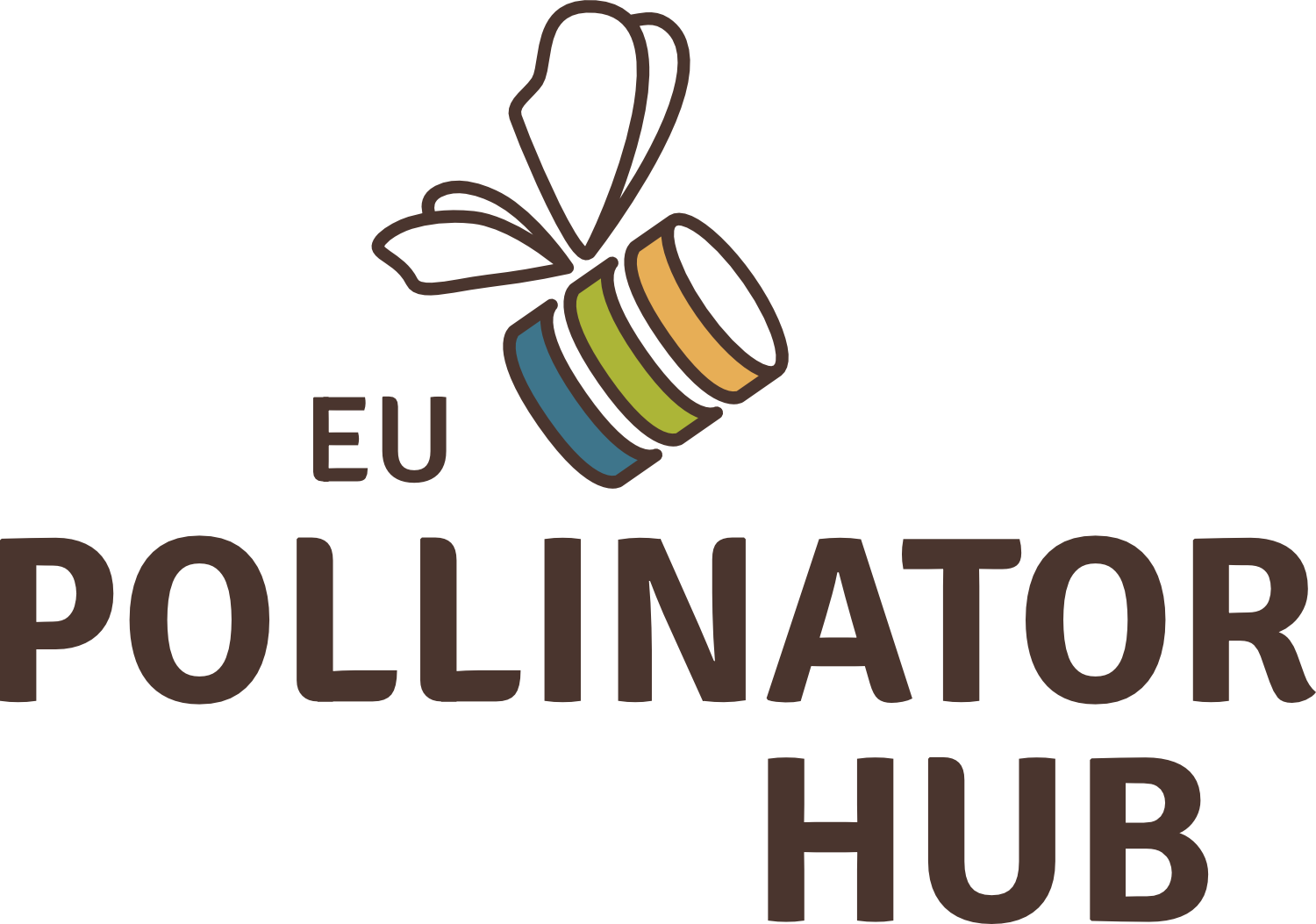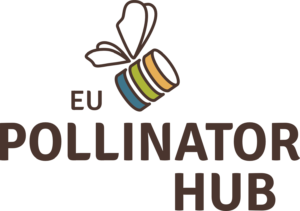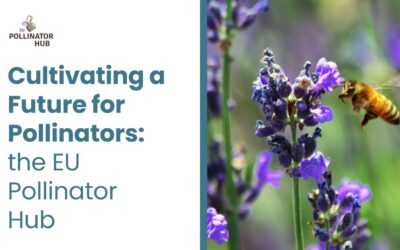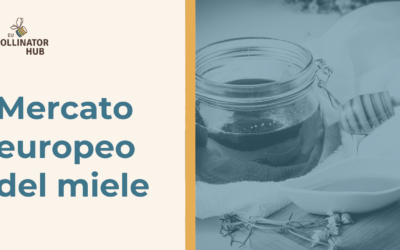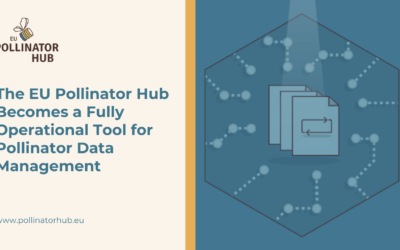On the 2nd of December, the EU Pollinator Hub hosted a Workshop on Data Sharing and Standardisation, organised in collaboration with the European Food Safety Authority (EFSA) and BeeLife. This exclusive online gathering, with a limited and invitation-only audience, aimed to engage European stakeholders in discussions about bees, beekeeping, and insect pollinators, focusing on their experiences in data sharing. The primary goal was to glean insights that could contribute to shaping the development of the EU Pollinator Hub. With over 60 participants from diverse stakeholder groups, the workshop set the stage for making the online platform fully operational by 2024, consolidating standardised pollinator-related data from across Europe.
Unveiling Technical Aspects in Plenary Sessions
Commencing with a plenary session, the workshop featured presentations providing a comprehensive overview of the European data policy framework, ongoing data collection efforts, and the noteworthy achievements of the EU Bee Partnership. Distinguished speakers included Agnes Rortais from EFSA, Joeri Robbrecht representing the European Commission, Marie-Pierre Chauzat of the European Reference Laboratory for Honey Bee Health (ANSES), and Noa Simon Delso, Scientific Director of BeeLife. Noa Simon Delso played a crucial role in introducing the EU Pollinator Hub, presenting it as an online platform funded by EFSA, designed to centralise existing information concerning the health of insect pollinators and the myriad factors influencing it.
Navigating Technical Realities in Breakout Sessions
Participating in breakout sessions, attendees, strategically segmented into four groups based on expertise and stakeholder affiliations, delved into the intricacies of data sharing experiences. These sessions unveiled a myriad of challenges faced by stakeholders, including concerns about confidentiality and privacy, time constraints within research projects, and the imperative for standardisation. The existing BeeXML data standardisation was acknowledged, but discussions also touched on challenges related to data duplication and the handling of orphaned data—data without a clear owner or purpose.
Aligning with End-User Expectations in Second Breakout Sessions
The second breakout session aimed to uncover the needs of end-users interacting with the EU Pollinator Hub. Participants expressed a strong desire to access a diverse range of data types, with a primary focus on bee health, covering diseases, pathogen/predator distribution, colony losses, and Varroa treatments. The spectrum of interest extended to data on wild insect pollinators, their diversity and distribution, as well as information on agricultural practices, including crop rotation and beekeeping practices. Notably, there was a significant emphasis on the need for pesticide data at both European and local levels, underlining the importance of understanding the impact of these chemicals on pollinator health.
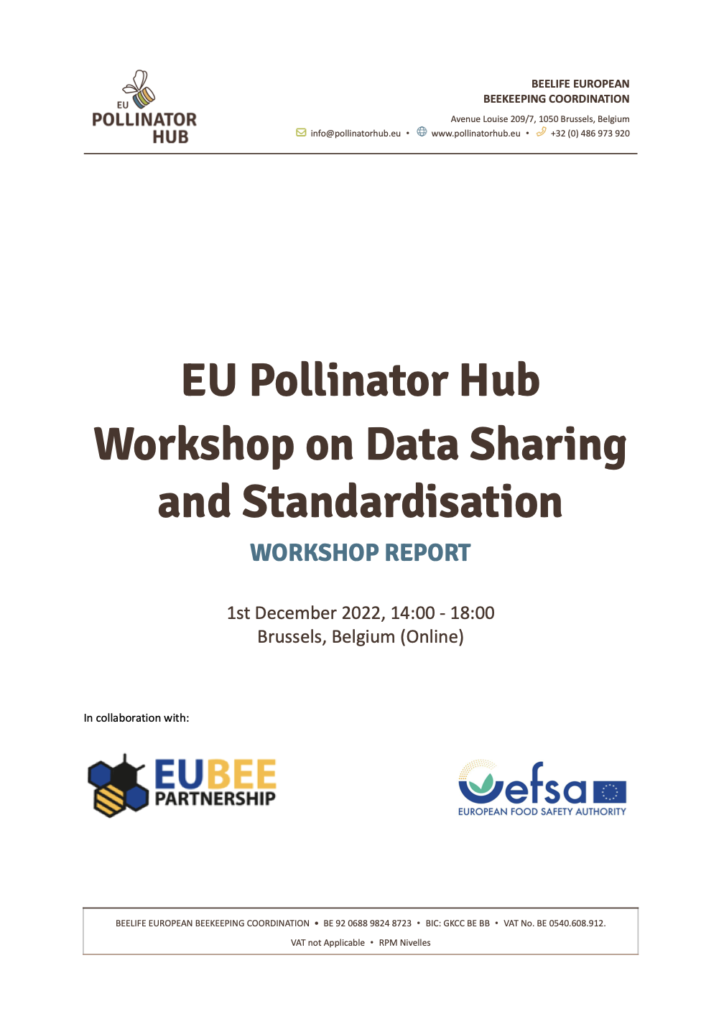
Strategic Communication and User-Centric Development
While the communication options for the EU Pollinator Hub are still in development, participants unanimously expressed interest in staying informed about platform developments. Proposed communication channels included newsletters or data alerts, with a common sentiment that users prefer a tailored approach to information consumption. The importance of developing filtering options within the design of newsletters or notification systems was underscored, recognising the potential for information overload. This technical insight into communication preferences will play a pivotal role in crafting an effective and user-friendly information dissemination strategy.
Addressing Stakeholder Needs: A Dynamic Development Approach
A fundamental aspect of the EU Pollinator Hub’s development lies in addressing the diverse needs identified during the workshop. Stakeholders expressed a multifaceted interest, from utilising the platform for data storage and seeking guidance to accessing historical data from previous research results. The EU Pollinator Hub is prepared to develop Application Programming Interfaces (APIs), integrate with other platforms, and visualise live data, addressing the anticipated preferences of users.
Feedback and Recommendations: A Collaborative Roadmap
Participants from various stakeholder groups provided valuable feedback, offering insights into their specific requirements and expectations from the platform. This collaborative roadmap outlines priorities for data acquisition and development within the Hub. The most requested fields, such as bee health, diseases, pathogen/predator distribution, colony losses, and Varroa treatments, set the tone for the data acquisition strategy.
The feedback will play a pivotal role in prioritising features and functionalities within the EU Pollinator Hub. The development team is committed to incorporating this valuable input, ensuring that the platform aligns closely with the articulated needs and expectations of stakeholders. The roadmap includes addressing technical considerations such as multilingual support, GDPR compliance, and the development of tools for efficient data access, visualisation, and citation.
Striking the Right Balance: Communication Options and Filtering Mechanisms
As the EU Pollinator Hub explores communication options, participants unanimously expressed interest in staying informed about developments on the platform. While the possibilities of newsletters and data alerts are considered, participants emphasised the importance of avoiding information overload. This insight underscores the need for meticulous design, incorporating filtering options to tailor communication according to user preferences. Striking the right balance between keeping users informed and preventing overwhelming information flow is crucial to fostering a positive user experience.
Unified Horizons: A Platform Poised for Evolution
The diverse needs articulated by participants paint a nuanced picture of the EU Pollinator Hub’s role as a multifaceted tool. Some stakeholders envision it as a repository for data storage, providing historical insights and guidance. Others see themselves as consumers of processed data, keen on the platform’s readiness to develop APIs linking it with other technological platforms and visualising live data on the site. The commitment to providing a flexible and user-centric experience aligns with the varied expectations from the platform.
The EU Pollinator Hub Workshop has not only sparked interest but has become a nexus for collaboration and knowledge exchange. The diverse horizons outlined by participants have set the stage for the platform’s evolution. The development team, armed with this invaluable feedback, is poised to shape the EU Pollinator Hub into a dynamic force for pollinator conservation across Europe. As the platform progresses, it stands ready to meet the complex and evolving needs of its diverse user base.
